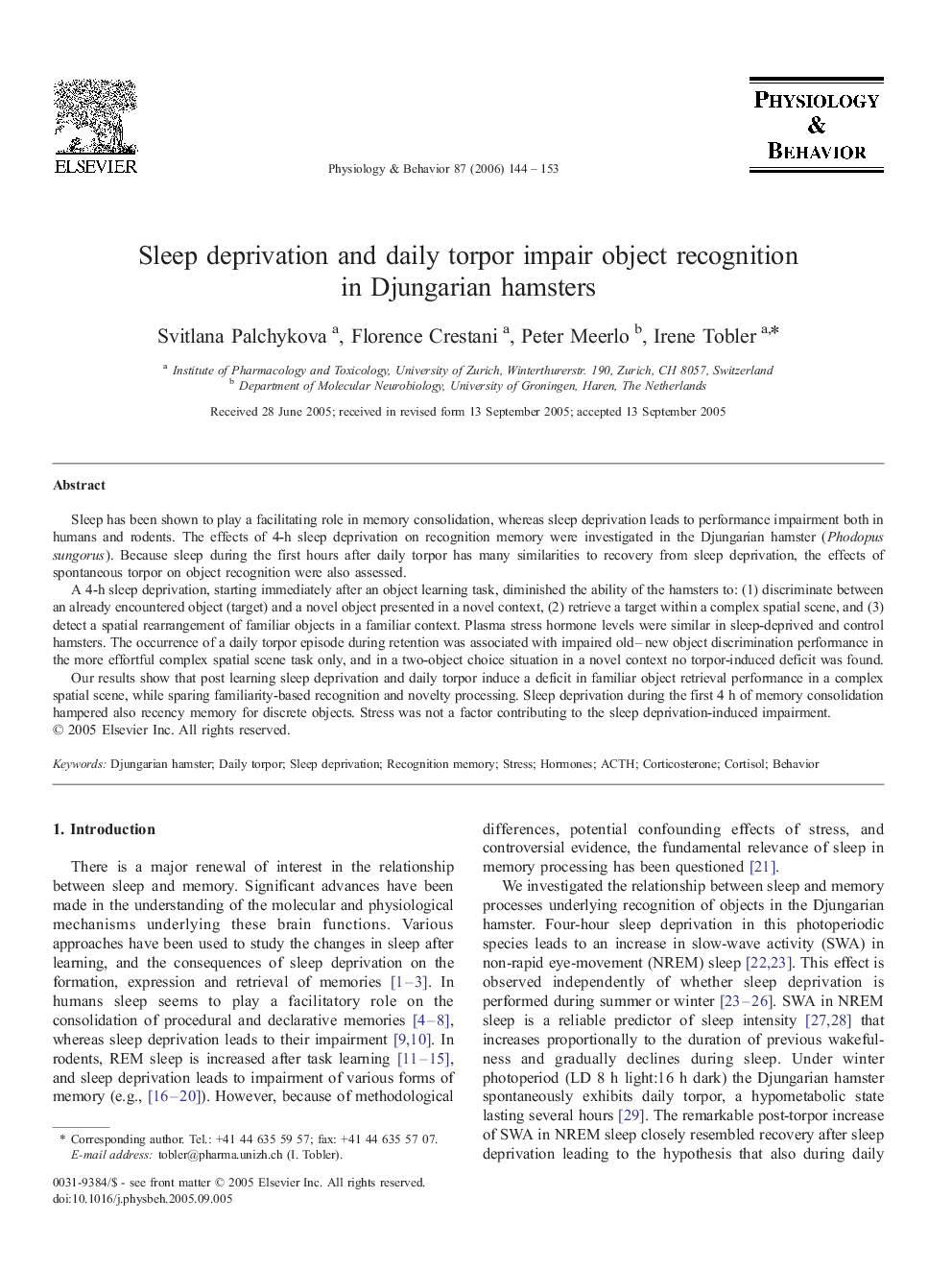| Article ID | Journal | Published Year | Pages | File Type |
|---|---|---|---|---|
| 2846491 | Physiology & Behavior | 2006 | 10 Pages |
Sleep has been shown to play a facilitating role in memory consolidation, whereas sleep deprivation leads to performance impairment both in humans and rodents. The effects of 4-h sleep deprivation on recognition memory were investigated in the Djungarian hamster (Phodopus sungorus). Because sleep during the first hours after daily torpor has many similarities to recovery from sleep deprivation, the effects of spontaneous torpor on object recognition were also assessed.A 4-h sleep deprivation, starting immediately after an object learning task, diminished the ability of the hamsters to: (1) discriminate between an already encountered object (target) and a novel object presented in a novel context, (2) retrieve a target within a complex spatial scene, and (3) detect a spatial rearrangement of familiar objects in a familiar context. Plasma stress hormone levels were similar in sleep-deprived and control hamsters. The occurrence of a daily torpor episode during retention was associated with impaired old–new object discrimination performance in the more effortful complex spatial scene task only, and in a two-object choice situation in a novel context no torpor-induced deficit was found.Our results show that post learning sleep deprivation and daily torpor induce a deficit in familiar object retrieval performance in a complex spatial scene, while sparing familiarity-based recognition and novelty processing. Sleep deprivation during the first 4 h of memory consolidation hampered also recency memory for discrete objects. Stress was not a factor contributing to the sleep deprivation-induced impairment.
